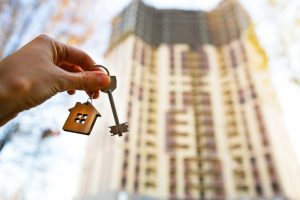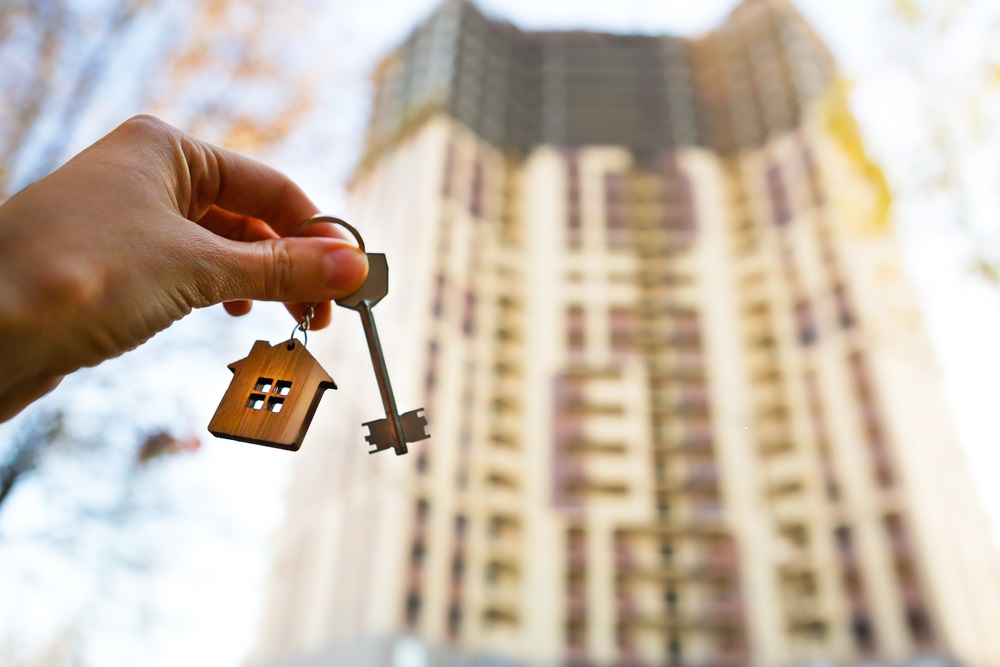John Doughty of Just Mortgages’ new build division weighs up the pros and cons of shared ownership
 What is shared ownership?
What is shared ownership?
Shared ownership, otherwise known as equity sharing or co-ownership, is a part buy and part rent arrangement where the purchaser takes out a mortgage for a share of the property.
This is usually somewhere between 25% and 75% of the total property value. The remaining share, of which the purchaser will pay rent to for the remaining share, is owned by a housing association.
Once someone has bought their initial share in the property, he or she then has the option to buy more shares in a method known as ‘staircasing’.
This essentially means over time, the purchaser can buy slices of 5% or more of the property until they get to 100% and the property is owned by them.
If you were the purchaser, this would mean you no longer have to pay rent to the housing association, only the remaining amount on your mortgage.
You should always ask a specialist adviser whether there are any restrictions when it comes to buying greater shares in your property.
You can buy shares worth 5% or more at any time. If you bought your house in 2021, you may be able to buy shares of 1% every year for the first fifteen years, but you would need to discuss this with a specialist adviser to see if this applies to you.
What are the advantages of shared ownership?
- It can be a good option for first-time buyers or those with smaller deposits, because your deposit can be as little as 5% of your share price. This can then translate to people getting onto the housing ladder faster, as the steps are not as steep. For example, the average UK house price was £256,000 in March 2021. If you were buying that property with a 90% loan-to-value mortgage, you would need a deposit of £25,600. To take out a 25% share on the same property, you could get the green light with a deposit as low as £1,280.
- Shared ownership can be a solid choice in the event of a relationship breakdown. When the family home is sold, the equity shared between two parties may be insufficient to purchase outright individually.
- For many, shared ownership is a more attractive alternative to renting. The reason for this is simple; the money you invest into the property will usually grow in value, providing the value of the property increases over time.
- Shared ownership may also be a good option for single purchasers, who may not meet the affordability checks on their salary alone to purchase a property as an outright owner.
What are the drawbacks of shared ownership?
- At the end of the day, you are still a tenant because you are paying rent on the remaining share to the housing association. This could also complicate the process when you are ready to sell your property as your housing association has right of first refusal before it is listed on the open market.
- If you purchase a 1% share, the cost will be established by looking at the original price of your house. However, if you decide you would like to purchase a share of 5% or more, you should note you will also be responsible for the cost of a valuation to be completed by a surveyor.
- Lenders can charge higher rates for shared ownership mortgages since they can be a more complicated path to buying property.
- Not all lenders will offer mortgages for shared ownership.
- These costs can quickly spiral. It is highly recommended that you seek the advice of a specialist adviser who can assess your affordability and take additional charges into consideration. These include property maintenance charges, valuations, rent, and mortgage repayments.
It is also worth noting that not all properties qualify for shared ownership, and there are eligibility rules set in place. Such as:
- Your household must earn £80,000 a year or less (£90,000 a year or less in London)
- You may need to show that you cannot afford the deposit and mortgage payments for a home that meets your needs on the open market
Help for those with affordability problems
As we look to the future of the shared ownership landscape, we could see more people considering this as house prices continue to soar. Inflated house prices introduce the issue of affordability.
Even though the most recent estimates state UK households accumulated between £140 and £190 billion in savings over lockdown, many may still struggle to save larger deposits.
For these people, shared ownership is a viable alternative, however we must remember that this option can often come with many ‘hidden’ costs.
 To make sure that this is the right option for you, I would always recommend contacting a specialist advisor who can give you a tailored plan that best suits your individual needs.
To make sure that this is the right option for you, I would always recommend contacting a specialist advisor who can give you a tailored plan that best suits your individual needs.
John Doughty is financial services director at Just Mortgages’ new build division














